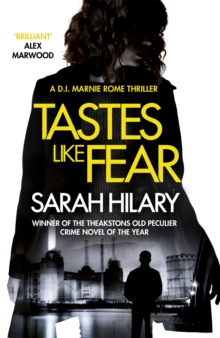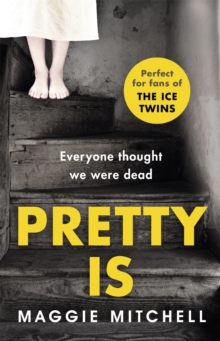It's how it's always been.
It's all we know.
And actually,
we're usually
quite happy
together.
Initially I wasn't convinced by the free verse structure - I didn't find it difficult or jarring to read, but for the first few chapters I simply couldn't really see the point of it. However, as the book progressed I did begin to feel that it added something. It makes the book a short, intense read (it took me about 90 minutes) which works well for the story, and the free verse helps to give a sense of otherness and reminds us that there is something different about this narrator, something that lends a slight awkwardness to the way others perceive her.
The story opens with Grace and Tippi going to school for the first time at 16, having been homeschooled up to this point - their father has lost his job as a college lecturer and their mother works in a bank so money is tight. State funding for their education is minimal, but will pay for their attendance at a school chosen solely because, despite Grace and Tippi being two individuals, it's willing to treat them as a single entity for the purposes of fees.
This is a thread that runs throughout the book. Quite rightly, there's a constant battle to have them treated as two, and yet, as Grace herself is forced to admit, there are times when they are one, and the unique bond between them goes far beyond the physical.
While Grace and Tippi are naturally the main focus of the story, Sarah Crossan doesn't neglect the other characters, who are all three-dimensional and interesting in their own right. I particularly liked Dragon, their younger sister, and Grammie, their grandmother, who lives with the family and who seems to be the most matter-of-fact and accepting when it comes to the twins' condition. A documentary producer could easily have been portrayed as an exploitative media vulture, but instead confounds even the twins' own expectations.
Much of the story deals with the every day difficulties of teenage life - crushes, fitting in, friendships, sneaking out to drink cider. There are also family problems to contend with: Tippi and Grace's father is struggling with a growing drink problem and their sister, who has a talent for ballet, is teetering on the verge of an eating disorder. It's sometimes sad, sometimes funny, sometimes bittersweet - so essentially, what you'd hope for from YA contemporary realism, but coloured, if not actually shaped, by the unique circumstances of the narrator. There are also interesting digressions on the practicalities of being conjoined - for example, while one twin has counselling, the other has to listen to loud music through headphones in order for the session to take place 'in private'.
All this is fascinating, insightful and perceptive, but it's really the last third of the story that sets this book apart. It's utterly heartbreaking and beautifully written, perfectly paced and sensitive. The sparse nature of the free verse is ideal here when it comes to conveying emotional pitch. I suspect One is a book I will remember for a long time.

